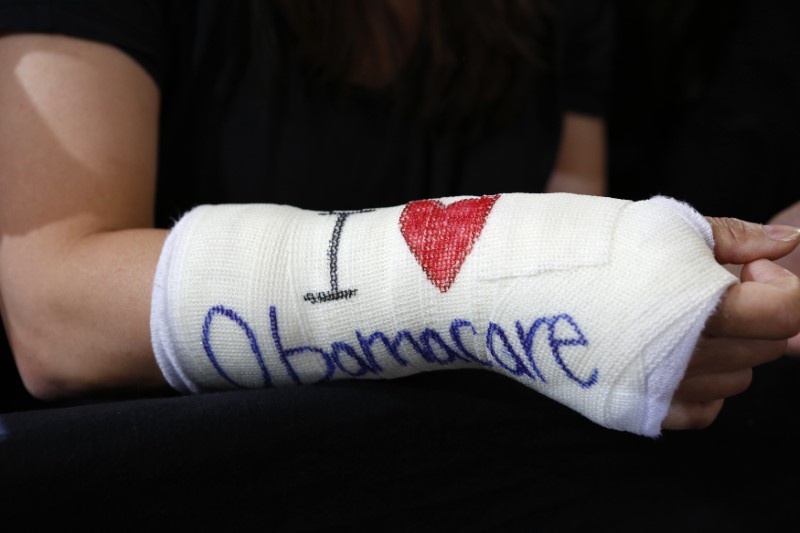By Caroline Humer
NEW YORK (Reuters) - The largest lobbying group for health insurers has asked U.S. lawmakers weighing the fate of Obamacare to push back the due date for 2018 individual insurance submissions to regulators in hopes of obtaining greater clarity on the program's future later on.
Republican leaders including President-elect Donald Trump and U.S. Senate Majority Leader Mitch McConnell have said they are keen to repeal President Barack Obama's signature health insurance program, the Affordable Care Act, which provides coverage to millions of Americans.
The process of repealing and replacing Obamacare could take two to three years, however, according to some senators.
How much of the law will change and when is still unclear. Trump has said some aspects of the program are good, such as allowing young adults to stay insured with their parents until age 26.
The trade association America’s Health Insurance Plans, or AHIP, has been speaking with senators for the past few weeks, spokeswoman Kristine Grow said on Tuesday. She provided a list of issues under discussion, which touch on the individual exchanges, Medicare and Medicaid.
Insurers backed the idea of high-risk pools, saying they can mitigate the risk of adverse selection and deliver effective coverage. Both Trump and his choice to head the U.S. Department of Health and Human Services, Tom Price, advocate for use of the pools to insure the very sick.
Two of AHIP's largest members are Anthem Inc and Cigna Corp (NYSE:CI), both of which plan to sell Obamacare plans in 2017.
Insurers also asked for funding through Jan. 1, 2019, for cost-sharing programs and making the 2016 reinsurance payments to insurers who qualify for them as planned. And they asked for elimination of two health insurance taxes, which they said would help slow premium growth.
They suggested extending the deadline to file health exchange plans by a few months until the summer of 2017, when there will be less uncertainty and more insurers are likely to submit bids.
Insurers are asking senators for limited changes to the Medicaid program during the transition period, and to ensure a transition period for states that have expanded Medicaid, the program for the poor jointly funded by the federal government and states. Republicans are considering changing its funding to block grants, which could cut the total amount.

On Medicare, the insurers are seeking changes as soon as February, when the government will propose target rates for 2018 Medicare Advantage plans.